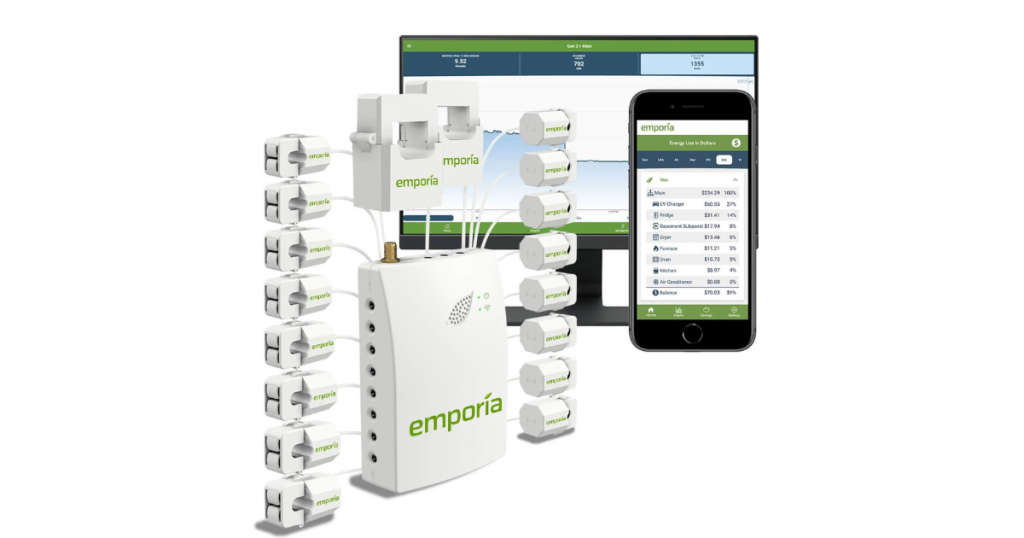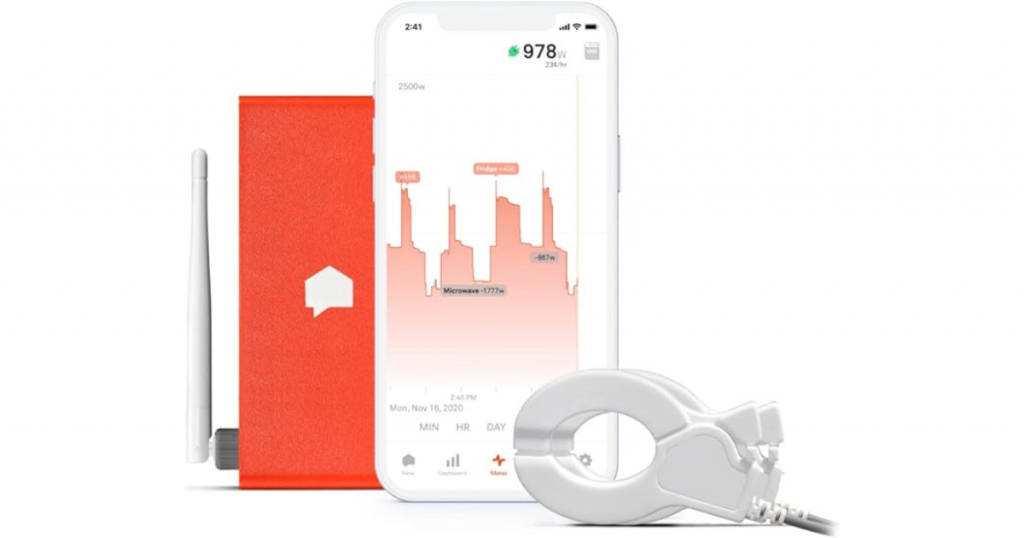Home Energy Monitors
Welcome to the ultimate guide for those looking to keep a vigilant eye on their home energy consumption—whether you're as keen as a hawk or as eco-conscious as a squirrel stashing away acorns. In today's world, being informed about your energy use isn't just about saving money (though that's a significant part of it); it's also about being a responsible citizen of the Earth.
With the right tools, you can monitor your energy consumption in real-time, identify the most power-hungry devices in your home, and even predict your next bill. Let's dive into a comparison of two leading home energy monitors: Emporia and Sense. We'll evaluate each product based on setup, data accuracy, integration with other devices, features, and price to help you decide which system might be the best fit for your home and lifestyle.
Home Energy Monitors
A Home Energy Monitor tracks and displays real-time energy usage within a household. By directly measuring electricity consumption from various appliances and devices, it provides users with insights into their energy usage patterns. This allows homeowners to identify areas of high energy consumption, make informed decisions to reduce waste, and ultimately save on utility bills.
Comparison Overview
1. Setup: Is it plug-and-play or a puzzle for NASA engineers?
Emporia
Installation of the Emporia Vue is straightforward for anyone with basic DIY skills. It involves clipping sensors onto the main feed in your circuit breaker and connecting the device to your Wi-Fi. The whole process can be completed within 30 minutes to an hour, making it accessible for most homeowners.

Sense
Sense offers a similar installation process, requiring you to attach sensors to your home's electrical panel. However, some users report that calibrating Sense for accurate reading can be slightly more complex, requiring a bit more patience and potentially a call to customer support for troubleshooting.
2. Data Accuracy: Because knowing your fridge uses more energy than a small country is important.
Emporia
Emporia's energy monitor provides real-time energy data with a high degree of accuracy. Users commend its ability to track usage down to the minute, allowing for precise monitoring and management of electricity consumption.
Sense
Sense is well-regarded for its machine learning capabilities that, over time, can accurately identify individual devices within your home. However, this feature may take some time to fully calibrate, meaning that immediate accuracy might not be as high as with Emporia, but it improves significantly with use.

3. Integration: Does it talk to your other smart devices or give them the cold shoulder?
Emporia
The Emporia Vue integrates well with other smart home devices and systems, including Amazon Alexa and Google Home, allowing for voice-controlled monitoring and management of your home energy usage.
Sense
Sense also boasts robust integration capabilities, supporting Alexa, Google Home, and even IFTTT for creating custom automation. This makes it a strong contender for those heavily invested in their smart home ecosystem.
4. Features: From identifying energy hogs to predicting your next electricity bill.
Emporia
Beyond basic monitoring, Emporia offers features like bill forecasting, energy-saving recommendations, and solar monitoring for homes with photovoltaic systems. Its app provides a detailed breakdown of energy use by device, though it may not be as granular in device detection as Sense.
Sense
Sense shines in its ability to identify and track individual devices' energy use over time, offering insights into your home's energy hogs and opportunities to save. Its app delivers detailed usage stats, trends, and even notifications when devices are turned on or off, offering a comprehensive view of your home's energy consumption.
5. Price: Can you save money without selling a kidney?
Emporia
Priced competitively, Emporia offers a cost-effective solution for energy monitoring. It strikes a balance between affordability and functionality, making it an attractive option for budget-conscious consumers looking to dip their toes into home energy monitoring.
Sense
Sense is typically priced higher than Emporia but justifies this with its advanced device detection technology and detailed energy insights. For those willing to invest a bit more for deeper analytics and integration, Sense might be the way to go.
Customer Support And Community: Navigating The Waters With A Helping Hand
When diving into the world of home energy monitoring, the quality of customer support and the presence of an active user community can make a significant difference in your overall experience. Here’s how Emporia and Sense stack up in these crucial areas.
Emporia
Emporia is known for its responsive and helpful customer support team. Users can reach out via email or through their support portal for assistance with setup, troubleshooting, or any questions that arise. Additionally, Emporia has been building a growing community of users. While it may not be as large as some established brands, it's a resourceful space for sharing tips, tricks, and advice. Emporia’s approachable customer service and developing community offer a solid support system for users.
Sense
Sense, on the other hand, excels with a vast and active user community. Their forums are bustling with discussions, insights, and solutions from fellow Sense users, making it a goldmine for anyone looking to dive deep into energy monitoring nuances. Sense’s customer support is also top-notch, providing multiple channels for contact, including phone support, which is a significant plus for users who prefer speaking to a representative for immediate assistance. The robust support ecosystem around Sense enhances user experience by ensuring help is always at hand.
Importance of Support and Community
Choosing a home energy monitor isn’t just about the hardware or software; it’s also about the support system that comes with it. Good customer service can ease the setup process and solve any hiccups quickly, ensuring that your energy monitoring journey is smooth. An active user community acts as an extended support network, offering real-world advice and innovative uses of the monitoring system that you might not find in the official documentation.
Whether you lean towards Emporia for its direct and personal customer service approach or Sense for its extensive community resources and immediate phone support, consider how you prefer to receive support. This aspect can greatly influence your satisfaction with a home energy monitoring system, especially when navigating the initial learning curve or tackling any issues that arise later on.
Conclusion
Deciding between Emporia and Sense comes down to your specific needs, budget, and how much detail you want from your energy monitoring system.
For the DIY Enthusiast and Budget-Conscious
Emporia is an excellent choice. Its straightforward setup, real-time monitoring, and integration capabilities make it a robust entry-level system that won't break the bank.
For the Tech-Savvy Homeowner
Sense, with its advanced device recognition and detailed energy use insights, is ideal. If you're already invested in a smart home ecosystem and crave data to optimize your energy use further, Sense offers the depth and integration you need.
Ultimately, both devices offer significant steps toward managing and reducing your home energy consumption. By choosing the one that aligns with your needs, you can monitor your home's energy like a boss, making informed decisions that benefit both your wallet and the planet.



